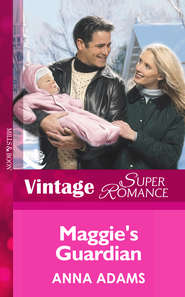По всем вопросам обращайтесь на: info@litportal.ru
(©) 2003-2025.
✖
Marriage in Jeopardy
Автор
Год написания книги
2019
Настройки чтения
Размер шрифта
Высота строк
Поля
“Want to go to my mom and dad’s?”
She sat up, a hint of light in her eyes at last. “Are you coming?”
As if she’d given him a choice, but he was doing this because she needed it, and he wasn’t about to let himself resent her. “Yes.”
“When do you want to leave?”
“We just have to pack your things. Tell me what you want and I’ll put everything in a bag for you.”
“What about Halloween?” She rubbed her face. “I feel as if I’m still asleep.”
“I asked Mrs. Dover to hand out our candy.” A retired teacher, she had a way with children.
“Good.” Lydia grinned. “I’d hate to find our door soaped when we get back.”
Hell, he was just relieved she could think of returning. “What do you need?”
She shoved the quilt down to her knees and crawled out, grimacing as the movement hurt her. “I’ll pack for myself.”
He got out of her way and dragged her bag from the back of the closet to the end of the bed.
“We should call your mom,” she said, grabbing her things.
“I did.”
Lydia stood over her suitcase, clothing spilling over her arms. “Evelyn must have fainted.”
“She was happy.” He’d dreamed of a real family until he was sixteen and they’d come home and brought him back to Kline, Maine, with them. He’d been grateful to escape the foster home where he’d milked cows and felt bitter for nearly two years, but he hadn’t expected family life back in Kline. He’d never been able to believe in it or his parents.
“What changed your mind, Josh?”
Still mired in the past, he didn’t understand.
She read the question in his eyes. “About going to Maine.”
“You needed to see Mom and Dad.”
Puzzled, she dropped her clothes and then tried to bunch them into a tidy pile. With a few deft moves, she folded all the pieces that had seeped over the edge of the suitcase. “Thanks.”
“Sure.”
Before either of them could ruin the moment, he fished out their coats and carried them to the car. When he realized she might try carrying her suitcase down the stairs, he hurtled back inside.
Lydia was putting on his favorite sweater. Soft, green, touchable, a shade that deepened her eyes so that he could barely make himself look away from them. Her head popped out of the V-neck. She looked embarrassed to be caught dressing—by her own husband—and confused about his abrupt return.
“What’s up?”
He shook his head, swallowing an accusation that she was treating him like a stranger. “You ready?”
“As soon as I add toiletries.” She tossed toothpaste and various other items into her bag, then she brushed her hair into place with her fingers and grabbed her purse off the dresser. “Ready.”
He scooped the quilt off the bed. Downstairs, he turned off the lights and then outside, he opened the back passenger door. Lydia hung back. “What?”
He held up the quilt. “I thought you could rest. It’s a long drive.”
“I’ll climb in the back if I get tired.”
“Come on, Lydia. Let me have my way. You’ve been a little more active each day, which I assume means the rest is helping you.” Physically, at least. He couldn’t say the silence in their house spelled recovery for either of them.
“I’m all right.” She touched his arm, willingly. His chest tightened. “I’m better.”
He opened the front door and helped her inside. As soon as he started the engine, she punched in her favorite radio station. Some guy sang about memories of love. Josh glanced at Lydia. Her smile startled him because it came from inside.
He smiled, too, but he had to look away from her. Making her happy felt too good.
THE NEEDLE on the gas gauge was dropping toward a quarter tank as he took the exit for Kline, Maine—named for Reverend Levi Kline, a sixteenth-century hellfire-and-brimstone minister whose influence still obscured most kindness in Josh’s hometown.
He drove down a long ramp between tall pines and far-off hardwoods, almost bare of fall leaves. He always felt more like a stranger than a prodigal son. No one in town had mentioned his parents’ way with a bottle, but disapproval had followed him down every street.
He’d escaped Kline’s small-town, fish-eye interest the morning after he’d graduated from high school. People described New Englanders as stand-offish. Not if you’d grown up among them in a family that provoked notice for all the wrong reasons.
He’d buried himself on the large city campus of Boston College and continued to remain unnoticed through law school. One thing a lobsterman’s son could count on in those days of dwindling catches had been plenty of financial aid.
During law school, a Commonwealth Supreme Court judge had selected him as his clerk. Afterward, he’d turned down six-figure starting salaries to keep his unspoken promises. Success often made him forget he was the town drunks’ son who wasn’t supposed to amount to anything.
Lydia beamed with appreciation at the quaint bandstand on the square and the Victorian houses that lined the west side. “Think of the history the people who’ve lived in those homes have seen. A woman from Colorado can’t even believe places like this are real.”
Her excitement annoyed him—like always. “I’ve got plenty of history—and it’s real enough.”
“Didn’t you know good times here, too?”
“You want the truth? I’m good at my job. People come to me for advice. I get offers—big offers that would mean a lot more to us than a town house.” He felt her gaze on him. Her hard gaze. “What?”
“I don’t care about offers. I’m beginning to hate your job. What about us? You can’t measure success by our marriage.”
“Maybe I don’t write you sonnets everyday, but I thought we were safe and settled.”
“That makes a girl’s heart beat faster.” She’d learned a thing or two about sarcasm. “We began growing apart the day you decided I could wait for your free time. Marriage takes effort, too.”
Starting to feel harried, he slapped the turn signal to indicate a right.
“Go ahead,” she said. “You were saying you’re successful.”
“Some people think so. I did.” Like her, he dropped the argument neither of them was going to win. “But every time I drive down these streets, I’m eighteen again, trying to escape. Look how my parents’ neighbors still stare.” He nodded at an elderly woman who was already too busy storing up gossip to recognize bitterness in his smile he shot her way. “I hid my family secrets. I let my mother and father make Clara’s life a living hell because I had this gut feeling no one else was ever supposed to know what went on behind our doors.”
“But didn’t you have good times?” Apparently, she had to insist. She pointed ahead of them. “Look at that Founder’s Day banner. That means a fair.”
“That happened over a month ago.”











